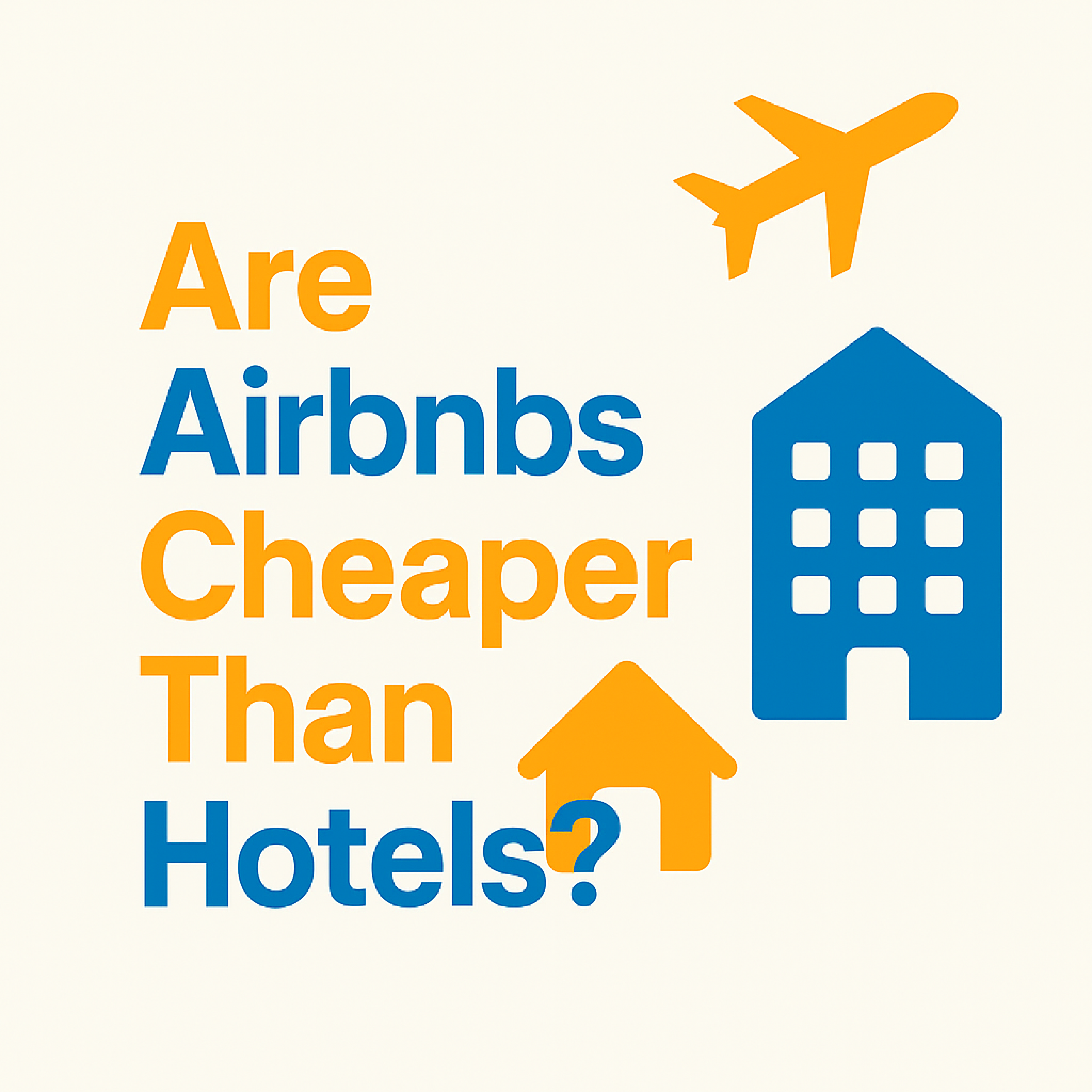
Are Airbnbs cheaper than hotels?
It Depends on What You Value.
It’s a fair question. With so many platforms, price points, and travel styles, the answer isn’t always straightforward.
The truth is, Airbnbs can be cheaper but that depends entirely on your needs, preferences, and how you define value. Cheaper doesn’t always mean better, and more expensive doesn’t always mean more aligned.
Let’s unpack what that really means.
Price vs. Value: Know the Difference
When most people compare hotels and Airbnbs, they start with the nightly rate. But that’s not the whole story.
Yes, you may find a standard hotel room at $90/night and an Airbnb at $120/night. On paper, the hotel seems cheaper. But what do you actually get for that rate?
With the Airbnb, you might have:
- A fully equipped kitchen
- Multiple bedrooms or sleeping areas
- A living space, possibly with outdoor access
- Laundry facilities
- More privacy and flexibility
For travelers who value independence, space, or have specific needs, that $120 may go a lot further than the cheaper hotel rate.
Who Benefits Most from Airbnb?
Certain types of travelers consistently find better value in an Airbnb.
1. Families and Groups
Hotel rooms are usually designed for two people. If you’re traveling with children, extended family, or friends, you’ll often need multiple rooms or a large suite. That adds up fast.
An Airbnb, on the other hand, might offer three bedrooms, a full kitchen, and shared living space all for less than the cost of booking several hotel rooms. Plus, it’s more comfortable and communal.
2. Guests with Dietary Restrictions
If you or someone in your travel group has allergies, health concerns, or follows a specific diet, access to a kitchen is critical. Preparing your own meals saves money and gives you control over ingredients something most hotels can’t offer.
3. Long-Term Travelers or Digital Nomads
For stays longer than a few days, hotels can become expensive and restrictive. Airbnb often offers weekly or monthly discounts, and the amenities (like laundry and kitchen access) make long stays more sustainable.
When Hotels Make More Sense
That said, hotels offer something many Airbnbs don’t: full-service convenience.
I’ve traveled solo and sometimes found that I deeply value:
- Room service
- Daily housekeeping
- On-site restaurants and spas
- Concierge support
- Seamless check-in/out experiences
These features remove the need for planning or decision fatigue. When you’re in back-to-back meetings or just want to be pampered, paying for convenience can be worth it.
So while a hotel may technically cost more, if it aligns with your desired experience, that additional cost becomes valuable.
The Misleading Nature of the Word “Cheap”
Let’s pause here.
“Cheap” is relative. What’s cheap to one traveler might be expensive to another. And what feels “affordable” may not offer value if it doesn’t meet your needs.
Instead of asking “Is it cheaper?” ask:
“Is it worth it for the experience I want to have?”
This is where many travelers go wrong. They focus on price over priorities. But booking accommodations isn’t just a transaction, it’s part of the travel experience.
Whether you choose an Airbnb or a hotel should come down to alignment not just budget.
So, are Airbnbs cheaper than hotels?
Sometimes, yes.
But the better question is:
“Which option offers more value for your travel style?”
If you’re traveling with a group, need space, plan to cook, or want to feel at home, an Airbnb can be the better choice both financially and experientially.
If you’re craving premium service, minimal decision-making, and full-on ease, a hotel may be worth the higher price tag.
At the end of the day, the goal isn’t to spend the least, it’s to spend intentionally.
Choose what aligns with your needs, supports your lifestyle, and creates peace of mind.
That’s how you travel smart and how you book in alignment.